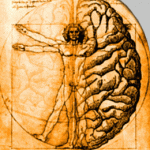Before enlightenment, chop wood, carry water.
After enlightenment, chop wood, carry water.
– Zen proverb
Mythologist Joseph Campbell once said that we don’t always need a ‘why’ life happens as it does, but often, we need a ‘how’.
How does life happen to us? How do we live life? And how do we mark or validate the events which change the shape of our lives?
One way to ‘how’ is through ritual.
A couple of years ago, I happened to attend a naming ceremony at my local Church of England. It was very like a traditional baptism but without the catechism. I didn’t know anyone involved, so can only surmise that the parents wanted to mark the birth of their baby but not have him baptised, as they weren’t or didn’t want to become members of the Church of England.
In years gone by, when church going was something the majority of the population did, the church handled all rituals for us. And today, as the baby’s parents demonstrated, it is still somewhere that many people, who don’t describe themselves as religious, go when they want to mark an event: birth and death; sickness and health, thanksgiving, marriage, and coming of age – to name but a few. People often go when they want some comfort.
But, it is not just the big events which we need to mark and manage. The uneventful days when we are alone can often be just as challenging and in need of a ‘how’. In psychology, the term ritual is sometimes used in a technical sense for a repetitive behavior systematically used by a person to neutralize or prevent anxiety.
Last winter, I was dreading the end of the summer and the drawing in of the dark nights. Each time I thought about it, I felt something close to despair. I soon learnt that by thinking about the upcoming rituals and religious festivals, I could make myself feel happier and more accepting of the dark days. Halloween, Bonfire Night, Thanksgiving, Diwali, Christmas and New Year helped me through the many long nights until spring arrived and I felt better.
There are many rituals we engage in, whether we know it or not. As a child picking brambles up the hills and moors near to where I grew up, we were told to leave the last couple of brambles on each branch, for the fairies to ensure that they would allow the brambles to grow again the following year. I did not know that this is a Celtic tradition, until I read Shiva Rea’s Tending the heart fire. Leaving out some brambles is like an offering to nature, and/or our ancestors. Similarly, the Halloween tradition of ‘Trick or Treat’, when people dress up and exchange candy, is an echo of the same ritual.
Superstition or pagan offerings? Who cares? Ritual gives us reassurance and hope that although the world is ever-changing, the sun will rise tomorrow, and there will be more brambles to eat next season.
All is well.
This same reassurance can be found in smaller daily rituals, like baking bread or making a pot of tea. It is no surprise that the Japanese have turned tea making into an elaborate ceremony. But less elaborate rituals work just as well. They are a moment of pause, a comforting sequence of familiar sounds and smells which can be offered up as meditation and a moment of mindfulness. And when done with meaning, they can, as the Zen proverb above says, lead or instill a sense of purpose and enlightenment in all aspects of our lives. Other simpler actions can help too. During the winter, I found that the seemingly easy rituals of lighting a fire and some candles, or putting on a pair of fluffy socks and drinking hot milk, helped me feel better when facing a long winter’s night, just as much as looking forward to Christmas did. I felt soothed and comforted.
When I was younger, I used to always be in a hurry, needing to be somewhere else, and now I see it was because I was looking for reassurance and comfort. I believed that I could only find that elsewhere and from someone else. I didn’t know tea-making, fire-lighting, or fluffy socks could help me create a space in which to be, to look within and at my life, and feel better without any external validation.
The poet Derek Walcott puts it beautifully in Love after Love:
The time will come
when, with elation
you will greet yourself arriving
at your own door
Life gives us many experiences good and bad which enrich us all the same. And sometimes there is no one there to comfort us. Nowhere has this been made more clear to me than when I was contemplating the gap on my CV and the well meaning people telling me not mention it for fear that I would never get another job. I didn’t want their advice or fear. I just wanted some sort of support and recognition.
I am finally learning that those experiences happened and are part of me. I don’t have to pretend otherwise. I don’t need to know why. I don’t need well-meaning people giving me advice or anxiety or even recognition. I only need a ‘how’. How do I mark those events which changed me, if I so choose? How do I let them go and move on with the rest of my life? Only I have the answers .
This is a wonderful surprise, and so I am finally beginning to understand the last line of Walcott’s wonderful Love after love.
‘Sit. Feast on your life.’
The time has come, indeed.






